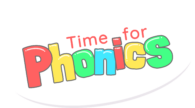As you probably know, reading is a really important part of the curriculum and encouraging parents to read with their children at home is essential to ensure that they continue to make good progress. But quite often parents – and sometimes teaching staff – really struggle with ways to engage with children whilst reading, what questions to ask, and what to write in reading records, reading diaries and journals. The fact is, it can be difficult to think of something different to write every day of the week. That’s where we come in!
How can parents help their children with reading at home?
Here are some general hints and tips you can give to parents to help them help their child to become a more proficient reader:
- When your child is reading their book for the first time, assist your child to decode any new and unfamiliar words, then use the second read to focus on your child’s comprehension.
- If your child can’t read a word, ask them to break it up. Can they use their ‘robot arms’? Can they see any sounds they know? Do they know a word that looks like it?
- Where possible respond to your child’s reading in their reading record. This could be their answer to one of thecomprehension questions below, a new word they have learnt, or any words they have found tricky to decode. Doing this gives your child’s teacher further evidence to support your child’s reading attainment.
What are good questions to ask when children are reading?
We can break this down into four elements; prediction, vocabulary, sequencing, retrieval and inference. It’s a good idea to give parents some ideas of questions for each one, and then hopefully before you know it, it will become second nature. Here are some examples:
Prediction Questions:
What do you think will happen next?
Look at the front cover. What do you think the book is about?
What do you think will happen at the end?
What do you think _____ will feel about that?
Vocabulary Questions:
What does this word mean?
Can you think of another word that means the same as this?
Why do you think the author used this word? What adjective did the author use for this object?
Sequencing Questions:
What happened at the beginning of the story? What happened next?
What happened at the end of the story?
Can you retell the story in your own words?
Retrieval Questions:
Who is the main character in the story?
Where is the story set?
Can you find the page where it says this? What’s your favourite bit of the story? Show me.
Inference Questions
Why did ______ say that? What do you think that means? How do you think this will end? What do you think…?
What are some example comments for reading records?
Found the word ____ a little tricky to decode.
Used their phonic knowledge to read some of the unfamiliar words
Used their robot arms to sound out the words
Read _____ fluently.
Enjoyed the part of the story where…
Could retell the story in their own words.
Told me about the beginning, middle and end. Identified the main character.
We talked together about why _______ had happened.
We discussed why ______ felt like this.
Enjoyed it when …
Will try to ______ next time.
Identified the tricky words.
Identified the adjacent consonants within the words. Could identify some adjectives within the story.
Told me how they wanted the story to end.
Predicted what the story was about by looking at the front cover.
I said a word and they found the correct page with it on. I asked a question and they found the correct page to answer it.
We read the story together taking it in turns to read
a page.
Told me an alternative ending .
This part where…made…laugh.
Told me about the setting of the story.
Found some rhyming words within the story and thought of some more.
They didn’t like the story because…



